Covid: Apprentice says staff found skills 'in the darkness'
- Published
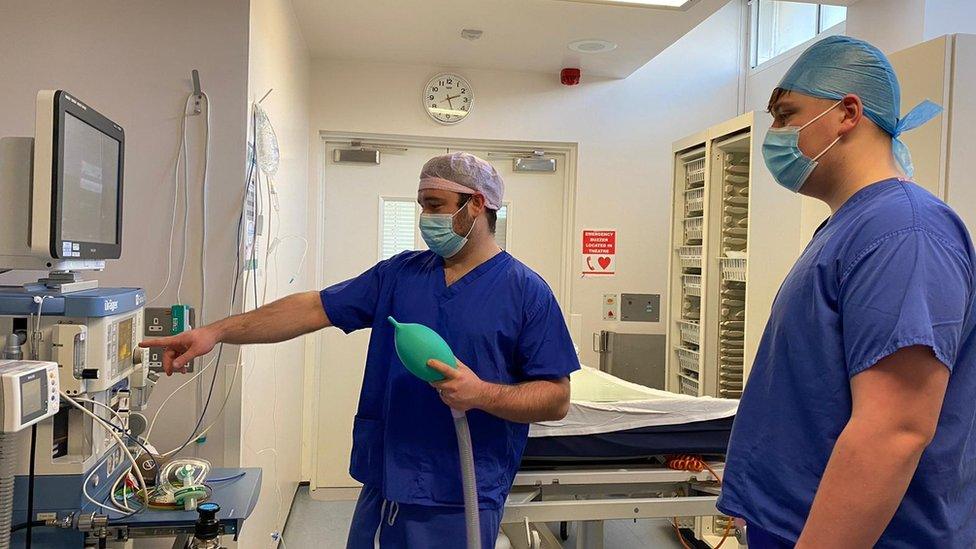
Ryan Davies (right) began as a Hywel Dda University Health Board apprentice seven months before Covid
For many hospital apprentices beginning placements in 2020, a pandemic was not necessarily what they signed up for.
But 18-year-old Ryan Davies, from Carmarthen, said Covid helped him and his colleagues to find their skills "in the darkness" that followed.
He was one of 53 Hywel Dda University Health Board apprentices who began in September 2019.
The health board said almost all their apprentices were on the front line during Covid.
Many were working on wards, in operating theatres or supporting the Covid-19 response with testing.
From computer science to the front line
Months before Ryan enrolled with the health board's apprenticeship academy, he had been studying computer science at Coleg Sir Gar in Llanelli.
He said he chose to apply because he did not have the right qualifications for health care and this was a "stepping stone into nursing".
Seven months into the apprenticeship, the pandemic hit and lockdown came into force in Wales.
Ryan said he realised it was "serious" when he was moved from his ward clerk placement on a respiratory ward in Glangwili Hospital, Carmarthen, to helping out hospital porters for a brief period.
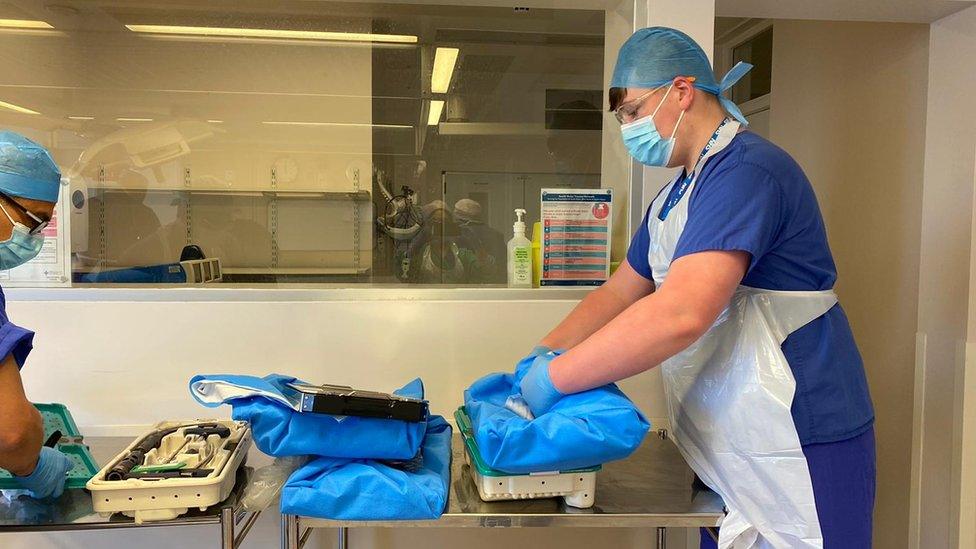
Ryan said helping with Covid-19 testing at Carmarthen Showground was "very rewarding"
"They were flat out with patients, and people needed to get moved when they were prepping the wards," he said.
"When Covid first hit, no-one knew what is was in the hospital."
Ryan was then moved to helping with Covid-19 testing in Carmarthen Showground, where he took swabs and blood samples, from March to November.
'In the darkness we found skills'
Ryan said "the unknown" at the start of the pandemic in March was the hardest part.
"I was really worried. I had to think about my family at home."
He said his step-mother, who also works in a hospital, discussed staying in a hotel or hostel to avoid taking the virus home with him.
However, he said he had experiences that he would not "normally have gained" by working on the front line.
"I feel that in the darkness we found skills that we wouldn't have normally found, we had to step up technically."
"It is nerve-wracking but when you're in the situation, you get on with it, you don't think about it and help as many people as you can."
'Never felt this was something I hadn't signed up for'
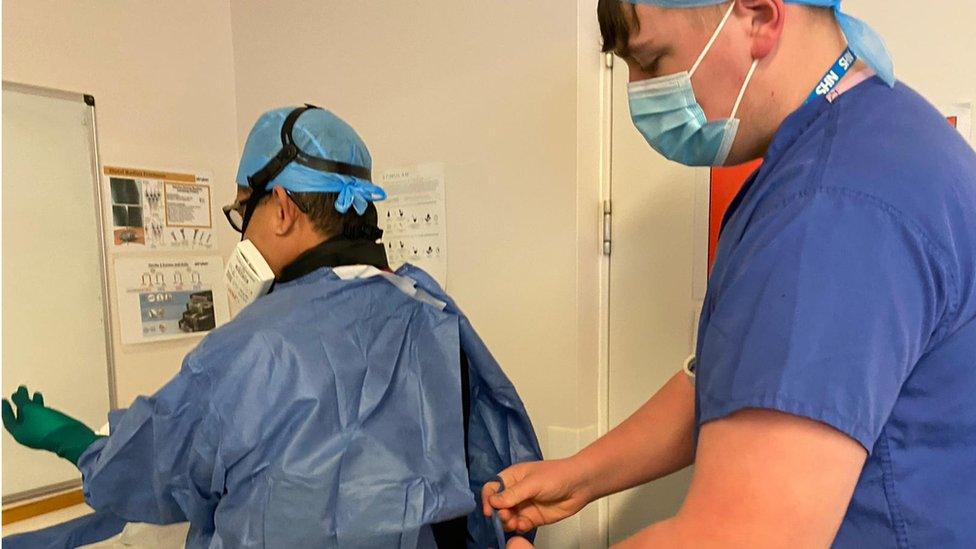
Ryan is currently on placement in operation theatres at Glangwili Hospital
Ryan said usually apprentices have two years to do their induction period before progressing to health care, but for his cohort it took just a year as "everyone stepped up" to help with the Covid response.
"At times I did feel it was too much, but I never thought I want to stop - if anything it made you want to keep going because these people need your help.
"I never felt this was something I hadn't signed up for."
Ryan said working on Covid-19 testing at Carmarthen Showground, was "very rewarding", where he learnt to take swabs, blood samples - anti-body test training and carried out community testing.
"We were going out into the community to test people who couldn't get to Carmarthen Showground.
"Some people were living alone and hadn't seen anyone in months. I felt like just going to see them, even though it was on their doorstep, made them a lot happier."
He added that having a Covid test was a "big factor" to these patients who were waiting for operations, because it was the "first step" to having more independence at home.
'Are you sure this is what you want to do?'
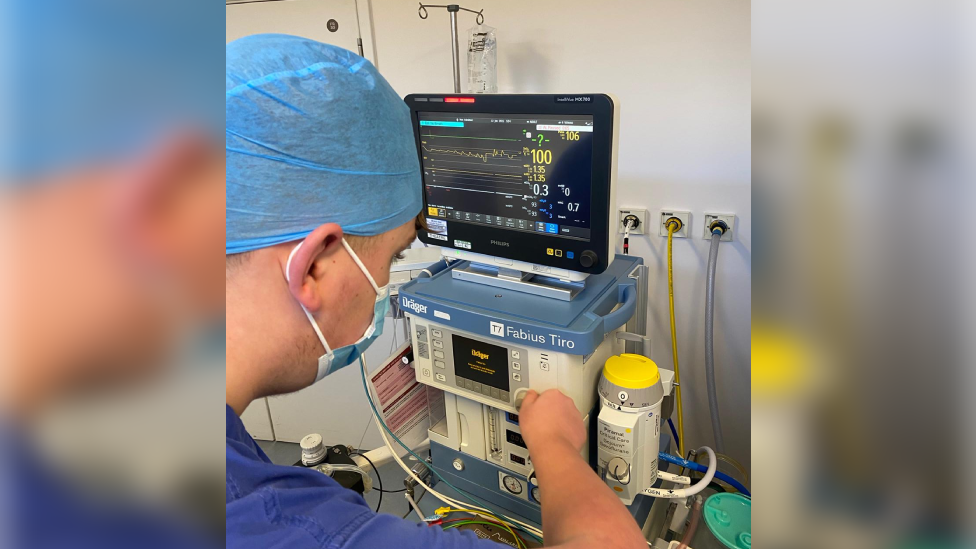
"Learning on the job is the biggest part of this"
Ryan said the variety of frontline staff working on Covid-19 testing became "one big team" - many of whom he had never worked alongside before, such as dental nurses and community nurses.
Compared to his friends at college staying at home, he said he was having a "very different" experience.
"I do think they were all a bit shocked.
"I had a lot of friends messaging me saying 'Are you sure this is what you want to do?'"
'Work my way up'
Now Ryan is on placement in operation theatres at Glangwili Hospital, where mentors and staff help to train him, despite "full on days".
"I want to go all the way with nursing, stick to my course, work my way up," he added.
When asked what advice he'd give to himself at the start of his apprenticeship, Ryan said "stick to it and always be open to ask for help".
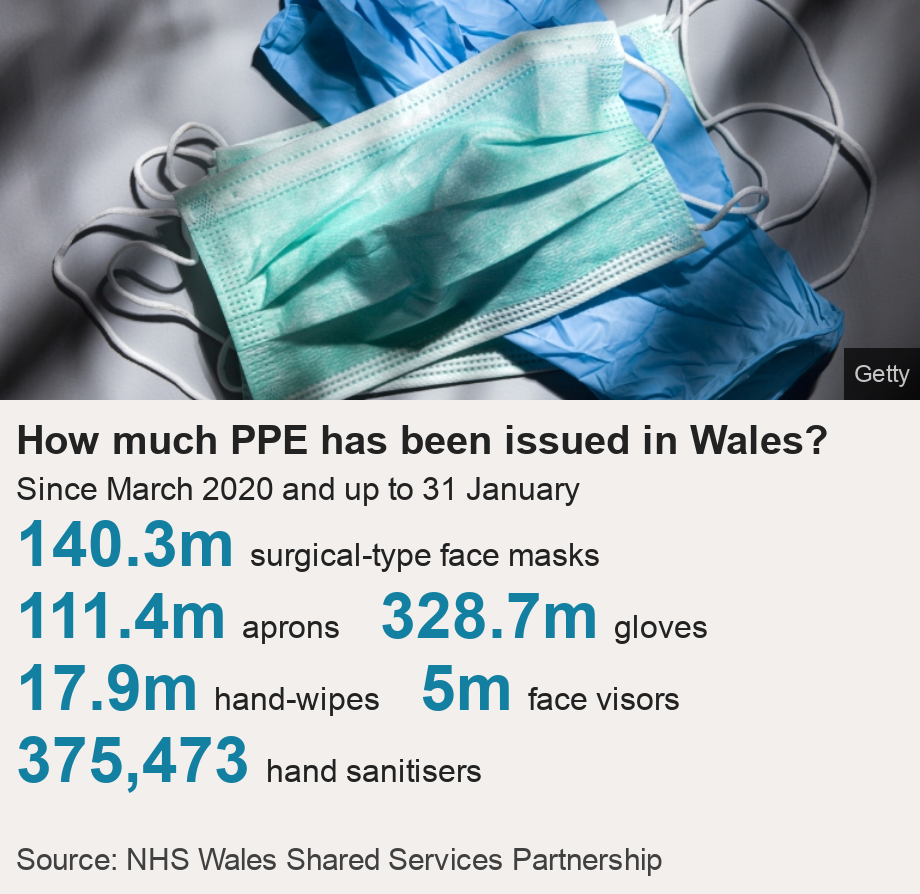

Lisa Gostling, Hywel Dda's director of workforce and organisational development said all their apprentices deliver "an incredibly important contribution to health care" and "particularly during this extraordinary time".
"Each and every one of them has helped us in our ongoing response to the pandemic, helping to protect our local communities and for that we are sincerely grateful," she said.
The Hywel Dda Apprentice Academy, external opens for applications for 2021 on 4 February, and the programme has expanded to non-clinical roles.
The scheme is designed to provide opportunities to people who may not have the right qualifications or be in a position to gain the qualifications, to work for the health board.
- Published2 February 2021
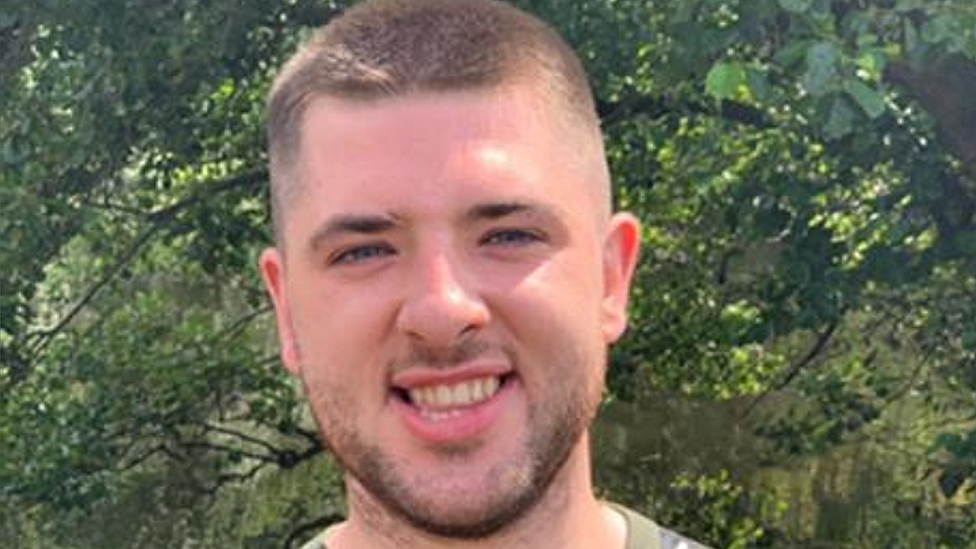
- Published28 April 2020
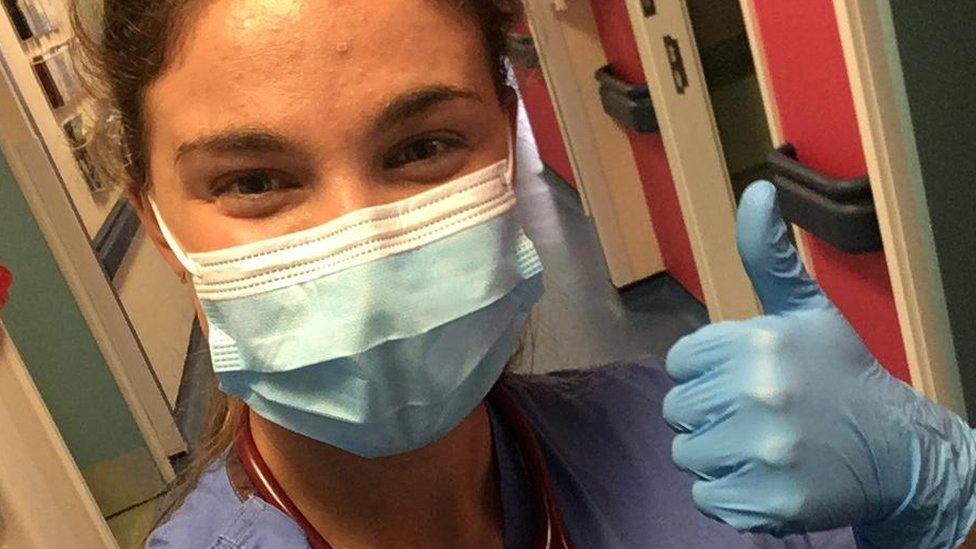
- Published23 April 2020
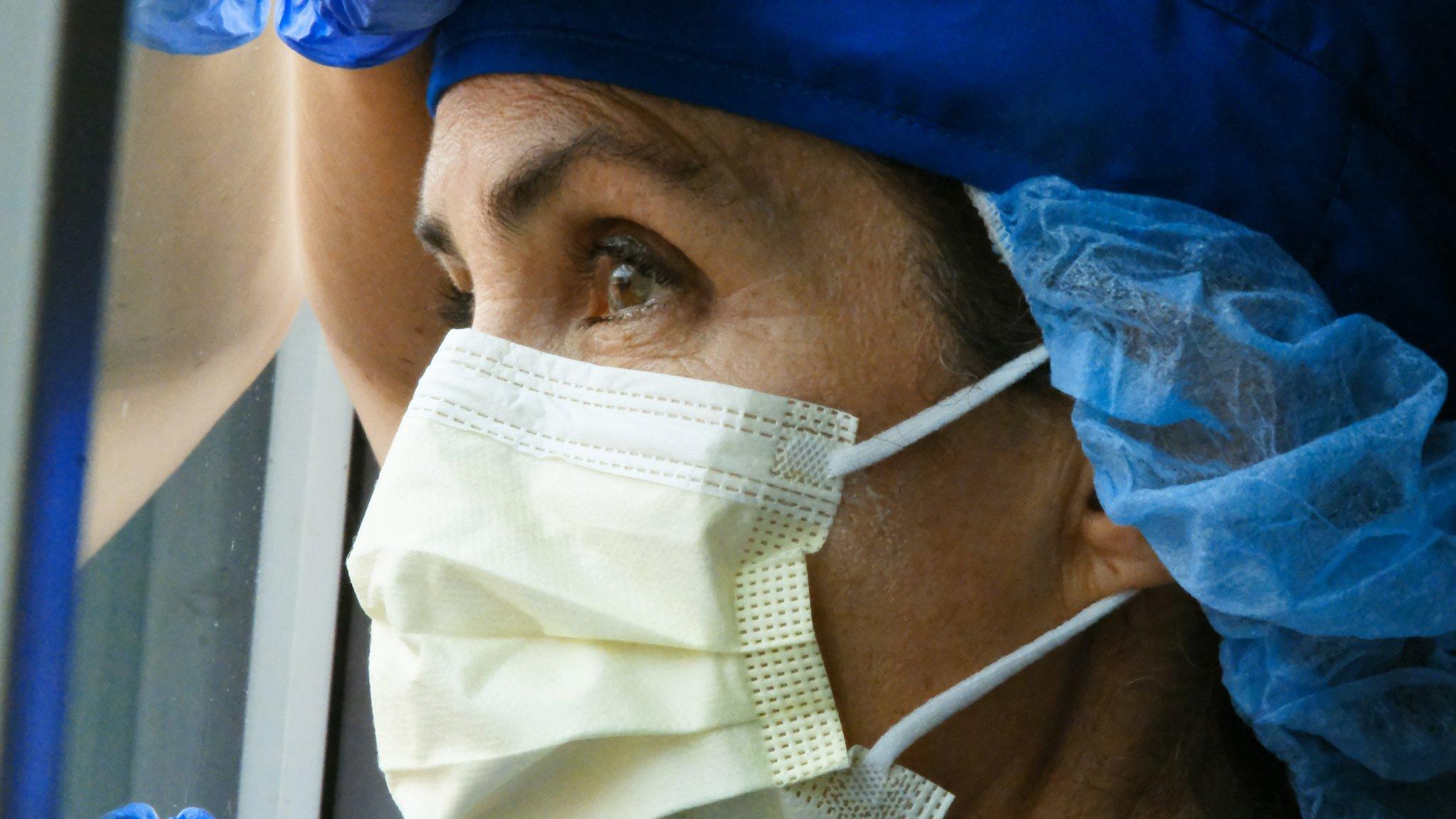
- Published6 January 2021
